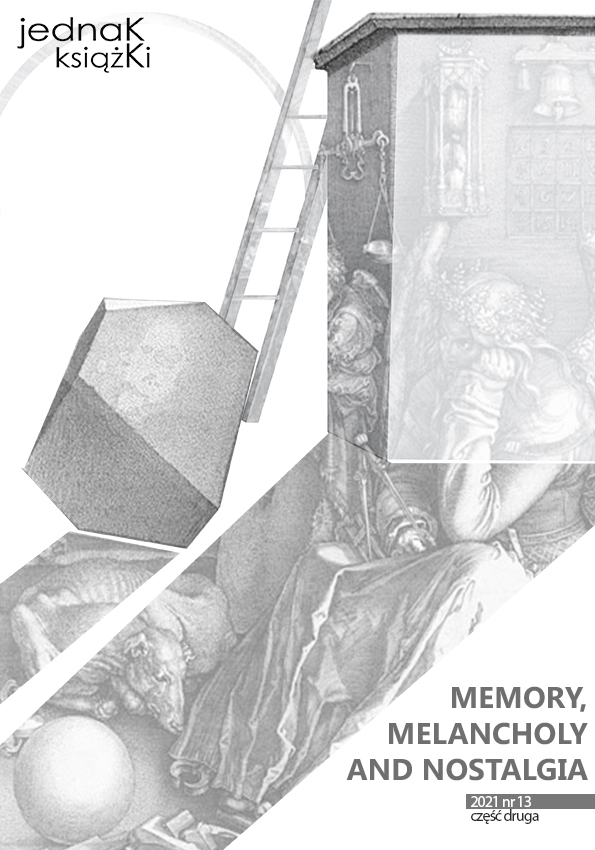Nostalgia for a Lost Home: Exile and Trauma in Lucette Lagnado’s Memoirs
DOI:
https://doi.org/10.26881/jk.2021.13.02Słowa kluczowe:
exile, trauma, Said, flashbacks, nightmares, memoirs, Caruth, HermanAbstrakt
This paper seeks to study exile as a traumatic experience by focusing on the multiple manifestations of trauma in the memoirs of the Jewish-Egyptian writer Lucette Lagnado. Exile, in Edward Said’s view, “is the unhealable rift forced between a human being and a native place, between the self and its true home” (Said 2000: 173). Lagnado chose writing to voice the trauma of exile of the whole Jewish Egyptian community expelled from Egypt after the establishment of the state of Israel and the arrival of the Free Officers to power in 1952. In Lagnado’s memoirs, trauma re-surfaces in different places and times, through flashbacks and nightmares. These unwanted and suppressed memories reemerge involuntarily and keep Lagnado trapped in an ever-ending nostalgia. Both Caruth’s work on trauma and Herman’s analysis of the three stages of trauma recovery will help us better understand the place of trauma in Lagnado’s memoirs.
Downloads
Bibliografia
Aciman André, ed. 1999. Letters of Transit: Reflections on Exile, Identity, Language, and Loss. New York: The New Press.
Ali Arfah Abduh. 1997. The Jews of Egypt, Barons and Wretched: Historical Study. Cairo: Etrac for Printing, Publishing & Distribution.
Boym Svetlana. 2001. The Future of Nostalgia. New York: Basic Books.
Caruth Cathy. 1996. Unclaimed Experience: Trauma, Narrative, and History. Baltimore: The Johns Hopkins University Press.
Freud Sigmund. 2010. The Interpretation of Dreams. Strachey James, trans. New York: Basic Books.
Herman Judith. 1992. Trauma and Recovery. New York: Basic Books.
Kaminsky Amy. 1992. Reading the Body Politics: Feminist Criticism and Latin American Women Writers. Minnesota: University of Minnesota Press.
Kaplan Ann E. 2005. Trauma Culture: The Politics of Terror and Loss in Media and Literature. New Brunswick: Rutgers University Press.
LaCapra Dominick. 2001. Writing Trauma Writing History. Baltimore: The Johns Hopkins University Press.
Lagnado Lucette. 2008. The Man in the White Sharkskin Suit: My Family’s Exodus from Old Cairo to the New World. New York: HarperCollins Publishers.
Lagnado Lucette. 2011. The Arrogant Years: One Girl’s Search for Her Lost Youth, from Cairo to Brooklyn. New York: HarperCollins Publishers.
Said Edward W. 2000. Reflections on Exile and other Essays. Cambridge: Harvard University Press.
Simon Scott. “‘The Arrogant Years’: An Egyptian Family in Exile.” 2011. Online: https:// choice.npr.org/index.html?origin=https://www.npr.org/transcripts/140515453. Accessed May 1, 2022.

 Uniwersyteckie Czasopisma Naukowe
Uniwersyteckie Czasopisma Naukowe





